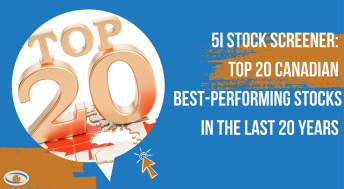Earlier this year we penned a couple of blogs that, more or less, beat up the mutual fund industry. We will add one more now, with a bit of an extension to highlight what's wrong with the investment industry in general as well as mutual funds. Then we'll give our friends and former colleagues in the business a break, but until then here are five more things we don’t like about the business.
There are simply too many choices.
There are at least 15,000 mutual funds to choose from in North America. Funds were supposed to make investors’ lives easier, not more complicated. But with so many funds, there are hundreds of funds that just duplicate others. Add it all up and it makes for a confusing mix of choices for investors.
Managers charge high fees just to hold cash.
Going into September we read lots of fund literature about how smart managers were moving to cash to protect their investors.
We have big issues with market timing. For one, market timers usually get it wrong, as these cash-holding managers did in September. Two, any manager going to cash is all but saying, “Hey, I am so much smarter than the market.” Um, no, you are not.
But the real problem with these managers is that they still charge you 2% or more to hold cash and do nothing. It doesn't make any sense to charge investors for the cash portion of a fund. The next time a fund manager brags about his/her 40% cash holdings, ask for a corresponding 40% reduction in fees — see how that goes over.
Fund managers charge you fees even when you lose money.
In almost every business, you don’t have to pay if a company does not perform. At the very least you get a discount. If your new fridge doesn’t work, the store will get you a new one or refund your money.
But in the investment world, if you lose 35% of your money, your investment advisor or fund manager still says, "Hey, where’s my 2.5% fee."’ (In reality, of course, they have already taken it despite their horrible performance).
We really admire the handful of companies out there that do not charge management fees if investors lose money. However, there are very few of them around.
The investment business wants all of your money.
Investors show us their portfolios all the time and they all have the same question: Do I have enough money to retire? In almost all the cases we looked at, the investors have too much money. Yet they continually worry, because the industry keeps them fretting about market corrections, rising interest rates and inflation.
As a result, lots of investors keep plowing money into their accounts, and generating fees for the industry, when they should be out spending their money and donating it. Some investors, of course, won’t have enough. But the industry is certainly skewed to try to get it all.
Considering the level of investment fees in Canada, would any advisor in Canada suggest to a wealthy client to take $1-million out of her portfolio and donate it or give it to her children? We doubt it.
Confusing terminology
Do you know what your fund’s Sortino ratio is? How about its alpha? Its r-squared? Investment professionals love to bandy about fancy terminology to impress clients. It helps them look like experts in the eyes of their customers. But really, most of it is not necessary.
Most investors just want to make money on their money. They could care less about ratios, betas and the like. How about an advisor just telling their client: “Here is what you made, and here is what I made from you.”
Of course, the reason this doesn’t happen is that sometimes clients will make less than their advisors, and, well, the industry just isn't going to tell you that.





Comments
Login to post a comment.